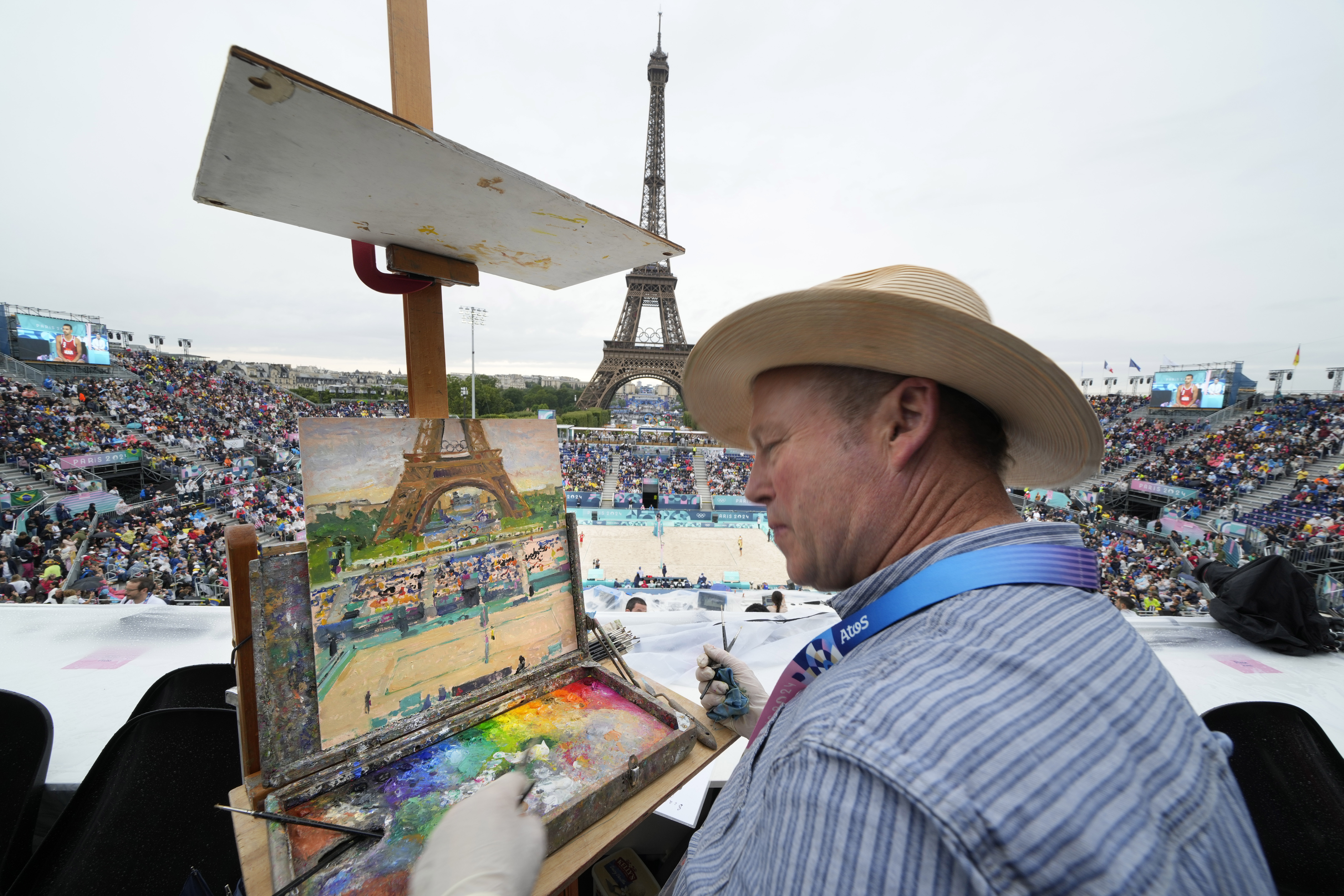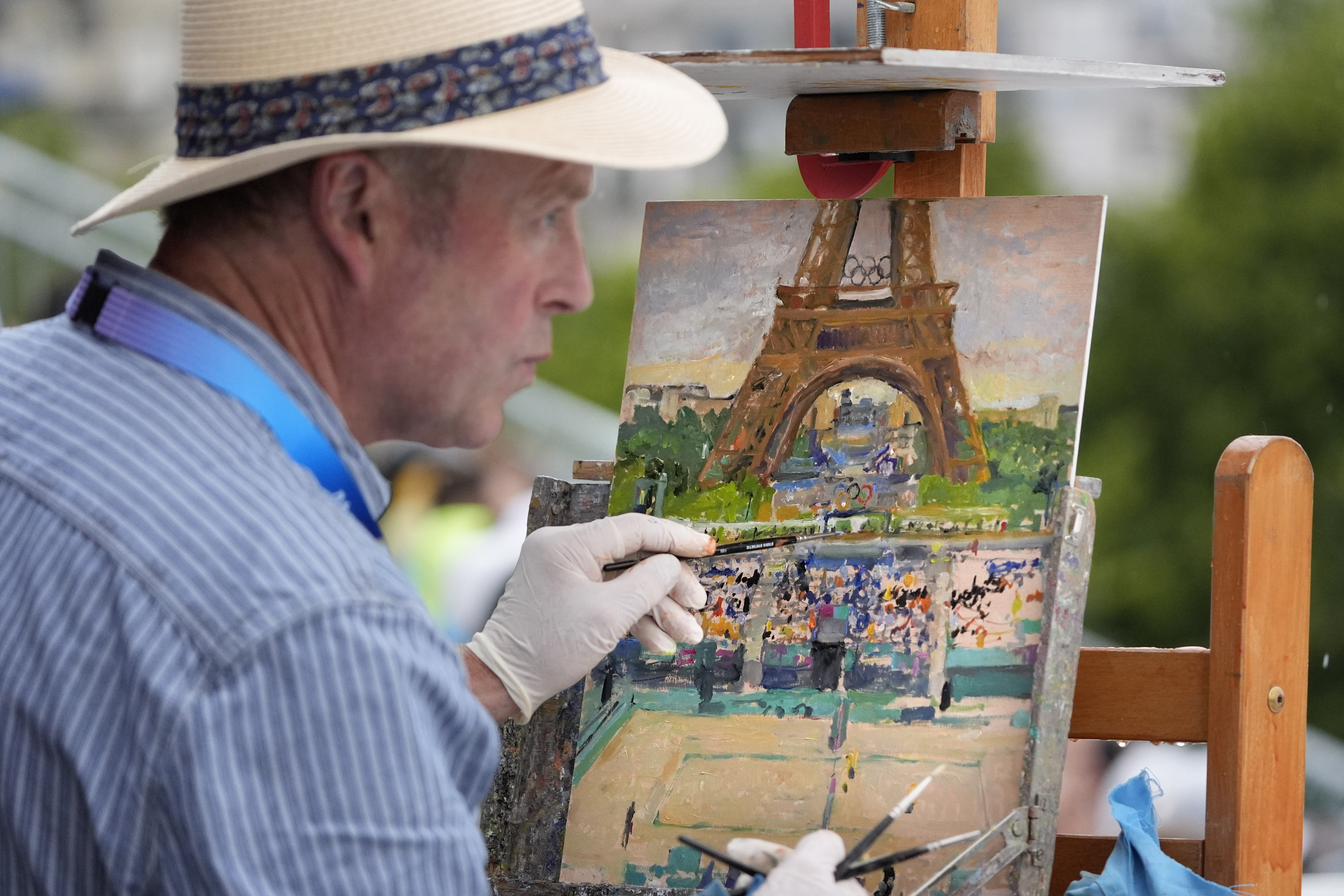
By HANNA ARHIROVA Associated Press
PARIS (AP) — He calls himself a “troglodyte” with his brushes, oil paints, and large canvas among the photographers with expensive cameras and long lenses. They’re all aiming to capture beach volleyball during the 2024 Olympic Games, but their approaches are quite different.
“It’s a collage of moments,” says 63-year-old British painter Peter Spens about his art. While the photograph is about a specific moment, “the painting brings back the spirits of the event.”
These are Spens’ third Summer Olympic Games, which the International Volleyball Federation has commissioned him to paint. While photographers manage to produce hundreds, if not thousands, of photos over numerous days of competitions, he will have only one image — a painting.
“We’re so used now as a society to phone images, and everyone takes thousands of images daily,” he says. Instead, he tries to focus on the reality and express his perceptions through his brush.

Spens works at one of the most recognizable and popular locations at these Olympics, with a view of the beach volleyball court against the backdrop of the Eiffel Tower. His easel is placed at the last and highest row of the stands, from where he has a wondrous vantage point of the play and Paris’ famous landmark — a monument that presented a real challenge.
“It’s a much more potent symbol of the city of Paris than any of the previous works that I’ve worked on,” he said.
On a recent day, a large red umbrella cast a deep shade over the easel, protecting the painting more than the artist himself. The heat had driven him to discard his shoes, leaving him painting in his socks. Nearby, a thermos of tea, a bottle of water and a Panama hat rested within easy reach.
For nearly a week, Spens had been immersed in his painting from morning until night, breaking only for a brief lunch. Despite his relentless efforts, only the silhouettes of the spectators, players and the Eiffel Tower had emerged on the canvas. The final details of the painting would take shape as the winning team of the Olympic Games was decided.
“I am not anxious, I am excited,” he said, smiling about the work still ahead.

As Spens draws the audience, a shifting crowd of hundreds each day, he concentrates on individual faces and the small details around them. He likely knows the venue better than anyone else. Yet, his painting isn’t meant to precisely replicate reality. Instead, it’s an emotional capture of the fervor and excitement that fill the air as the Olympics progress, with every team striving to reach the final.
Spens crafted his first Olympic beach volleyball painting on commission in London and then in Rio. He only missed the Tokyo Olympics because of the coronavirus pandemic. With the years, his fondness for beach volleyball has grown and he appreciated the teamwork that is one of the greatest values of the sport.
“I’m seeing the best players in the world,” he said.
Although Spens considers himself old-fashioned, he remains confident in the value of his work despite the proliferation of technology and advancing artificial intelligence.
“My message would be to put your phone on silent and in your pocket and get out your sketchbook and crayons,” he said. “I would say that painting and drawing is a mindful, restorative activity because it’s putting you in touch with the world outside yourself.”

